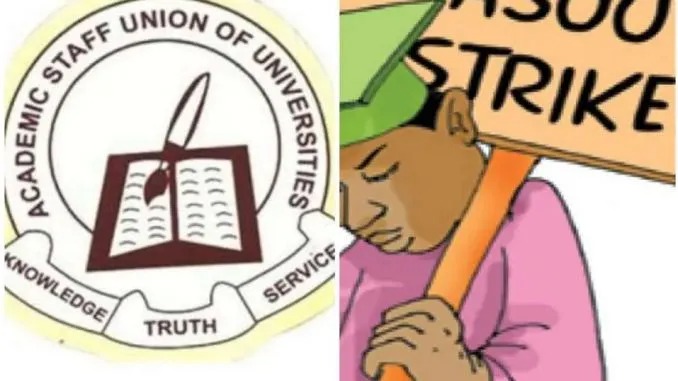By Qosim Suleiman
A human rights lawyer, Inibehe Effiong, has said the failure of the striking Academic Staff Union of Universities (ASUU) to resume as ordered by a court on Wednesday could be legal as long as a stay of execution application has been filed “together with a notice of appeal.”
A judge, Polycarp Hamman, of the National Industrial Court of Nigeria (NICN) sitting in Abuja had granted an interlocutory injunction application by the Nigerian government to restrain ASUU from continuing with the strike pending its determination of the substantive suit.
While ASUU said it is appealing the court order, many Nigerian students have asked if it would not amount to contempt of court if the union fails to suspend the strike before the appeal is heard.
But speaking on PREMIUM TIMES’ Twitter Space on Thursday, Mr Effiong said it would be legal to continue with the strike if the union already filed a motion for stay of execution alongside the application for an appeal.
He said: “A stay of execution may be granted on terms where an appeal has been filed or when an application is made to the court. I am aware that a decision was taken to appeal and I am also aware that that appeal is to go with a motion for stay.”
Also speaking on the Twitter Space, a former Welfare Officer of ASUU at the Obafemi Awolowo University (OAU), Ile-Ife, Chijioke Uwasomba, confirmed that the union has filed an appeal at the appellate court.
“First thing this morning, our lawyers have appealed and they have also asked for a stay of execution,” he said on Thursday.
He noted that the disputes that resulted in the strike could have been easily resolved if the government was committed to funding public education.
Mr Uwasomba also condemned the government’s stance on ‘No Work, No pay,’ insisting that teaching was the only aspect of the lecturers’ work affected by the strike.
He noted that research and community service being engaged in by the lecturers have continued unhindered for the past seven months.
‘Court won’t resolve dispute’
Both Messr Effiong and Uwasomba stated that legal option would not bring an end to the dispute between the Nigerian government and the aggrieved lecturers.
Mr Uwasomba said the option would rather complicate the conflict.
He accused the government of being irresponsible and having no regard for the Nigerian people.
On his part, Mr Effiong suggested that both parties return to the negotiation table, noting that “litigation is not the best way to resolve the issue.”
While he called on both parties to find a middle ground, he noted that returning to class without any significant achievement will be counterproductive.
He said: “If you tell students to go back to classes and then they do not get any difference – nothing is felt in terms of impact, nothing is seen in terms of positive outlook from this strike– what would have been the essence of staying at home for seven months.”
He called on the federal government to implement the agreements reached with ASUU “but I’m also saying that ASUU must also be mindful and amenable to areas where some form of compromise can be reached because ultimately, there has to be a compromise.”
‘ASUU should uphold students’ right’
Meanwhile, Mr Effiong charged ASUU to also stand up for the rights of students being trampled upon in some public universities.
The human rights lawyer condemned cases where some university management proscribed the student union and its activities.
“When it comes to the issues affecting the students in this country ASUU does not seem to exude the level of passion that we all see when they have matters relating to the agreement with the federal government,” he said. “So after the strike, I hope that ASUU will go back to their various branches and begin to interrogate how they can be more effective in responding to concerns by students, both against lecturers who are victimising students and against university management that are also clamping down on the rights of students to organise and also speak for themselves.”
For publication of your news content, articles, videos or any other news worthy materials, please send to nnekatorti@gmail.com. For more enquiry, please call +234-706-806-4347 or whatsapp +234-706-806-4347. To place an advert, please call 07068064347.





